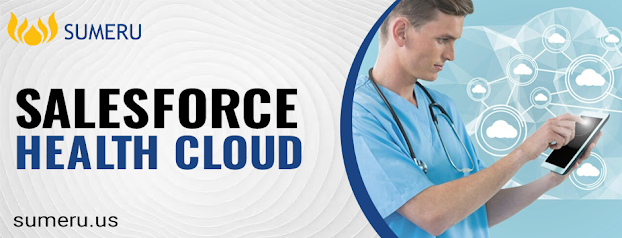Navigating the Future: Integrating Health Cloud Solutions in Healthcare Systems
The Evolution of Healthcare Systems
Traditional healthcare systems have long been burdened by siloed information, inefficient processes, and limited accessibility to medical records. Patients often face hurdles when accessing their healthcare data, leading to fragmented care and missed opportunities for early intervention. Additionally, healthcare providers grapple with the challenge of securely managing vast amounts of patient information while ensuring compliance with regulatory standards.
The Role of Health Cloud Solutions
Health cloud solutions offer a transformative approach to address these challenges by providing a secure, centralized platform for storing, managing, and accessing healthcare data. By migrating to the cloud, healthcare systems can streamline operations, enhance collaboration among care teams, and empower patients to take an active role in their health management.
Streamlined Data Management
One of the primary benefits of integrating health cloud solutions is the consolidation of patient data from disparate sources into a unified system. This enables healthcare providers to access comprehensive patient records in real-time, regardless of their location or the device they use. From electronic health records (EHRs) to diagnostic imaging and wearable device data, all information is seamlessly integrated into a single, secure repository.
Enhanced Collaboration and Communication
Cloud-based platforms facilitate seamless communication and collaboration among healthcare providers, enabling interdisciplinary care teams to coordinate efforts and make informed decisions. Through secure messaging, telehealth capabilities, and shared access to patient data, providers can collaborate more effectively, leading to improved care coordination and patient outcomes.
Empowering Patient Engagement
Health cloud solutions empower patients by granting them access to their medical records, appointment scheduling tools, and educational resources through user-friendly portals and mobile applications. By actively engaging patients in their care journey, healthcare providers can foster a sense of ownership and accountability, leading to better treatment adherence and outcomes.
Overcoming Challenges and Ensuring Security
While the benefits of Health Cloud Services are vast, healthcare organizations must address various challenges to ensure successful integration. Data privacy and security remain paramount concerns, requiring robust encryption protocols, access controls, and compliance with regulatory standards such as HIPAA (Health Insurance Portability and Accountability Act) and GDPR (General Data Protection Regulation).
Additionally, healthcare providers must invest in robust cybersecurity measures to safeguard against potential threats such as data breaches and ransomware attacks. Regular security audits, employee training programs, and proactive monitoring are essential components of a comprehensive security strategy in the cloud.
Empower Your Practice with Sumeru's Salesforce Health Cloud: Unifying Patient Care for Better Outcomes
Sumeru's Salesforce Health Cloud offers a centralized solution for healthcare providers to efficiently manage patient data in real-time. With features like personalized communication and seamless EHR integration, it fosters better care coordination and patient engagement. By providing a unified platform, it enhances decision-making and ultimately improves patient satisfaction and treatment plan adherence.
Looking Ahead: The Future of Healthcare
As we look to the future, the integration of Health Cloud Services will continue to drive innovation and transformation within the healthcare industry. From leveraging artificial intelligence and machine learning algorithms for predictive analytics to harnessing the power of big data to inform personalized treatment plans, the possibilities are endless.
By embracing a cloud-first approach, healthcare systems can unlock new opportunities to improve patient outcomes, optimize resource utilization, and drive efficiencies across the care continuum. Navigating the future of healthcare requires a concerted effort to embrace innovation, adapt to evolving technologies, and prioritize the delivery of high-quality, patient-centered care.
In conclusion, integrating health cloud solutions represents a pivotal step forward in transforming traditional healthcare systems into agile, data-driven ecosystems capable of meeting the evolving needs of patients and providers alike. By harnessing the power of the cloud, we can navigate the complexities of modern healthcare with confidence, knowing that the future holds promise for a healthier, more connected world.






Comments
Post a Comment